|
Post autism discovery I have gone through the "if only" phase of reflection. If only I had been diagnosed younger..... As a woman in her 40's, the lens of retrospect has identified so many pivotal moments where knowing who I was and how my brain worked could have led to many different outcomes (this is not a violin request, merely an observation). I know many other women who have had the same thoughts as autistic women are now being described as the "lost generation" as we come to learn so much more about neurodivergence.
But I can quickly stop these ponderings because just looking historically, the earliest I could have been diagnosed would have been in 1994; back in my last year of secondary school. This is when Asperger's Disorder was first recognised as a pervasive developmental disorder in the Diagnostic Statistic Manual. By this stage I was well into mastering the art of observation and learning human behaviour and communication conventions. It became so clear that to communicate and appease, you simply become the person in front of you. What could not be to like about you then?! Throw in an abundance of niceties and impeccable manners and there you have it..... acceptance! But I digress.... So easily we could believe we are in an epidemic of autism diagnosis. If we were only to look at the statistics between 1980 and 2014 it would appear that way with an increase in prevalance from 0.5 per 1000 children under 8 through to 16.8 per 1000 children under 8 in 2014 in the USA according to CDC 2014 report (notice we aren't yet looking at adult diagnoses so expect a full blown escalation in the near future). I am also of the great belief that we have seen a massive increase in so many additional environmental stressors which potentially trigger co-existing presentations which play the role in amplifying autistic characteristics over the past 30 years. It doesn't take a rocket scientist to look around to see the additional sensory load alone in our day today. Throw that into a brain with a decreased stress threshold and off we go. Again another digression for another day! The history of how autism has been defined alone is really interesting and if we are to really understand and accept neurodiversity, it is important to understand the diagnostics and definitions. History of the diagnosis of autism Lets dive in. So grab a cuppa and get comfy! DSM-III 1980-1994 Despite the term autism first being introduced by Leo Kanner in 1943 and Asperger's disorder research first published in 1944 by Hans Asperger, it wasn't until 1980 that infantile autism was first recognised as a pervasive developmental disorder in the DSM-III (Diagnostic Statistic Manual developed by the American Psychiatric Association). Previous to this between 1952 and 1980, there was no category for autism but it was thought to be a psychiatric disorder rather than behavioural condition categorised with childhood schizophrenia. To be dianosed with infantile autism, you had to be a child, have had onset before 30 months of age, had deficits in language, shown bizarre behaviours and had a serious lack of social response. Under these criteria, more severely impaired autistic children were diagnosed. Prevalence rates at this time were 0.5 per 1000 children (CDC). DSM-IV (and DSM IV-TR) 1994-2013 In 1994 the DSM-IV the term "Pervasive Developmental Disorder" was used to describe a spectrum of autism and related disorders including autistic disorder, PDD-NOS, Aspergers disorder, Rett's syndrome and childhood disintegrative disorder. This was the first time that those with higher functionality (and I use this term soooo loosely as I am not a fan) were identified. The DSM-IV has a triad of diagnostic criteria or three domains which were: * impaired social reciprocity * impaired language/communication and * restricted or repetitive patterns of interests/activities. To meet the criteria, the individual must show at least 2 social, at least 1 communicative and at least 1 restricted behaviour with onset in at least one area before the age of 3 years. DSM-5 2013-present 2013 saw the release of the revised DSM-5. Probably the most significant change was that it combined all of the separate disorders of the DSM-IV into one single condition called Autism Spectrum Disorder (ASD). The diagnostic criteria changed from the triad to a dyad: * Social Communication Deficits * Restricted Interests and Repetitive Behaviours (RRBs). The new criteria acknowledged that although characteristics are present from early life, they may not become fully evident until the time in life when there are demands (in particular social demands) that exceed their coping capacities (think school year, teens and school refusal, self-harm, university life, motherhood, full-time employment etc etc etc). There are severity descriptors applied to each domains which recognise the level of support required. The level can be different for social communication and RRBs. The new criteria also recognise that these levels can change over time and in different contexts. Other changes include the ability to also officially diagnose a co-occurring condition (such as anxiety disorder, ADD/ADHD) in addition to ASD. WHERE ARE WE NOW? Certainly our current thinking has moved a long way from the early diagnoses of "childhood schizophrenia" or "infantile autism". We know that it is life-long developmental neurobiological presentation. We know that stand alone autism presents uniquely in every individual but add in some co-occurring presentations which are extra special additions that may exacerbate or mask autistic characteristics and we can really appreciate the full 3D spectral diversity. Childhood presentation is different to teenage presentation which is different to adult presentation in each individual. Each day is different. Each audience will see it differently. So by the time you meet a 30's or 40's-something adult with ASD, it can be almost forgivable for invalidating the autistic claim because you are most likely meeting a master chameleon who has devoted their entire life to studying how to be neurotypical while the whole time feeling like they have been dropped in from another planet and continually falling apart the moment the door shuts!
0 Comments
This little winner arose after my seeking another way of using the chicken meat from all the stock and broth that I have been making for my GAPS diet. Chicken and veg were starting to wear thin for the family! So low and behold we have a gluten free, grain free, dairy free, egg free, paleo friendly chicken leek pie! INGREDIENTS:
FILLING
METHOD: PASTRY
FILLING I make this while the base is cooking.
Serve either as is (my kids take it to school in their lunchbox), or with a salad and a splash of fermented veg. Here's a question you won't find on many health questionnaires I'm sure! But have you noticed that your dog (or random other friendly dogs) greet you with a friendly kiss to the leg? Sure it may be that you just have a loving friendly canine friend but there can be a few other reasons for this. Maybe you have a wound that needs attention or perhaps you have been visiting other hounds and you are being investigated for betrayal but it can also be indicative of a hormonal disturbance in your body.
By now you may have heard of the hormone cortisol. This is our chronic stress survival hormone which can have an influence on blood sugar levels, blood pressure, immune function and even the anti-inflammatory processes in the body. It is made in the adrenal glands. It has a very helpful friend called aldosterone. Aldosterone is also made in the adrenal glands and it belongs to a group of hormones called mineralocorticoids. It's main role is to regulate the amount of salt (or more specifically sodium and potassium) in our body which in turn regulates our blood pressure, balances electrolytes in our blood and controls the distribution of fluid in our body (ie. cankles, face swelling). Like all hormones in the body, there is the possibility of them being over-produced or under-produced. When aldosterone is over-produced which can happen under stress and when cortisol is also over-produced or if there is excessive processed salt in the diet (table salt - sodium chloride), signs can be an increase in blood pressure, low potassium, muscle weakness and tingling and even numbness in your extremities. One suggestion here is to eliminate processed salt. Processed table salt is simply sodium chloride as compared to a natural salt which contains an array of numerous naturally balanced minerals (around 84). It is extensively documented in studies (in particular the DASH study which has been cited by 2047 further articles) that dietary sodium from PROCESSED SALT is a key influence in elevated blood pressure and blood volume. This is the salt that is found in most processed foods. This salt as already mentioned needs to be minimised/eliminated. But that does not mean we should avoid all salt; in fact it is essential for optimal health to consume natures salt. Mineral salts have been shown to actually lower blood pressure in patients who have presented with mild hypertension (Nutrition Journal 2011, 10:88) One of the effects of chronic stress where there can be a cortisol "deficiency" or under-production of cortisol termed adrenal insufficiency as part of the picture of adrenal fatigue syndrome is an under-production of aldosterone. Some of the symptoms of this can be: * dizziness (especially if moving from a lying position to standing) * palpitations * irregular heart beat * swelling of extremities (ankles, wrists and a puffy face). * low blood pressure * low pulse * frequent urination * sweating * change in body temperature (often warmer) * thirst * craving salt (often plain salted potato crisps, olives and other salty foods) * dog licking your legs (without a wound) as you may be excreting excess salt. Many of these symptoms form part of the chronic stress picture that is far from uncommon today. There is a role that natural salt (such as Murray River flakes, Tassie Sea Salt, Himilayan salt, Celtic Sea Salt etc) plays in supporting both low and high aldosterone. By adding 1/4-1/2 tsp of a natural salt to 1L of water (and then drinking between 2-3L water a day), trace minerals are brought into the body and the balance of aldosterone can be supported. Aldosterone and renin levels can be tested by 24 hour urine collection or by a blood test to assess whether the adrenal glands are producing appropriate amounts of aldosterone and also to determine a potential cause of excess or deficiency. This is something to chat with your health professional about. But above all, any symptoms of chronic stress should not be taken lightly. The effects stress has at a physiological level in our bodies I believe is still grossly underestimated today. There is only so long we can ignore the effects of stress and every new sunrise brings the perfect opportunity to look into ways of managing the stresses in our life. Perhaps today is the perfect day to take that loving dog of yours out for some nature and take some deep breaths and switch the focus away from your legs!  A little 2 minute mindfulness challenge for you. Stop what you are doing. Look around you. Take everything you see in. Now ask the question: "what would have been here 200 years ago?" If you are like me where I sit right now, I can see a crystal, plant, lots of shells (thanks to my little miner birds!) and that really is about it. Why do this you may ask? Even when we may think we are not stressed, our nervous system may still be dealing with a burden of extra sensory information compared to what was around pre-industrial revolution time.... there are the man-made plastics everywhere, computers, bright man-made colours dying man-made materials, buzzing sounds from electromagnetic radiation, perfumes, chemical smells and the list goes on! So how can this impact our health? Our body doesn't perceive the stress of a running from a tiger any differently to the bombardment of information it receives from extra sensory input. This impacts our nutrition in many ways from gut health, brain health with anxiety, mood disorders, etc, even our blood sugar response and our hormonal system. The first three areas of our nutrition to suffer are our magnesium and zinc levels and the production of stomach acid. Straight up this can lead to nutrient deficiencies, gut flora changes (SIBO - small intestinal bacterial overgrowth), leaky gut, liver function changes, inflammation, food sensitivities, skin rashes, allergies, anxiety, mood issues, depression, thyroid function changes, food cravings, fatigue, hypoglycaemia, insulin resistance, depleted progesterone, elevated estrogens and many other reactions I have not remembered to list!!! As you may guess by now, we can be stressed without realising we are stressed! So what can we do..........
Follow me on your favourite social media platform for more...
Hear me out on this one.. Yes you may think I've gone too far making "broth pizza"... but in my quest to get some broth in to a slightly "particular" eater, I thought I'd give this a go and it was a huge winner. Garlic broth pizza made with arrowroot and coconut flour!
What are the benefits of broth and why would I consider putting it in pizza? Bone broth is a nutrient dense natural multivitamin containing protein already broken down for us into amino acids and minerals all easily absorbable by our digestive system. As humans all around the globe, we have consumed broths and bone broths for centuries (a chef at Rosslyn Bay Resort commented on many pots of broth on stove tops across Asia that had been brewing for over 90 years - a family tradition). Over the past few generations though we have lost this cultural base of our diet which were even supports as babies first foods. We have a 2 out of 3 strike rate of kids happily and knowingly consuming broth as a straight drink with some cinnamon but in order to make that 3 out of 3 we need to be a little more creative! When sharing the message of how to consume more broth with clients, I say to use it wherever you use water when cooking. So while making a grain free pizza base yesterday with broth instead of water, I decided to give it a go sprinkling dehydrated chicken broth by Broth of Life (can also be found in our shop www.eatand3veg.com.au) with the garlic topping. What a hit!!! Strike rate 3 out of 3 instantly! So if you are wanting to give this a go, here is the recipe: PIZZA BASE modified from Jodie Day's Thermomix Paleo Pizza Base
TOPPING
In the years before our big diet and lifestyle changes and moving from the world of diagnostic imaging into nutrition I carried an extra 30kg. I had tried so much and thought I was doing the right things - eating as I was told by diabetes clinic (yes I had T2 diabetes too...) and exercising madly to the point of heart palpitations and passing out. I remember days when it was really challenging and I was so disappointed that my weight wouldn't shift that I thought that if I could just gain another couple of kilos, I would qualify for bariatric surgery. It was easier to go up than down. it only took one pasta meal to grab me a couple of extra kilos!
Fast forward 5 years.... here is what back then I failed to realise about weight...... As a nutritionist I have never focused on weight loss. To me weight is another marker telling us that the body is in some way out of equilibrium whether from food sensitivities, inflammation from inflammatory foods, chemicals or stress, hormonal imbalance or suppression of optimal function. There are other just as important markers of health. These include our moods, energy, digestion, whether our immune system is helping us fight infection or if it is overstimulated by auto-immune illness and hormonal function (ranging from blood sugar, stress response, thyroid hormone through to reproductive health). From personal experience, I found it demoralising being told that I needed to lose weight. I knew I was struggling with weight and lived with frustration, embarrassment and judgement of myself that I couldn’t lose it so to hear it from others affirmed that I wasn’t good enough in my mind. But what if the weight was an extra symptom to add to the list of others (hormonal fluctuations, depression, fatigue) rather than being the cause? Finding health today is focused on losing weight when this is really a side benefit of gaining health! But our modern approach to losing weight has the capability to create deep scars and internal emotional abuse in the way we speak to ourselves. How many of us gauge our self-worth by a number? Our day can be directed (a great day or a bad day) by the number displayed representing our gravitational pull when we jump on those scales at the same time every morning. That number triggers a barrage of emotion; shame, guilt, un-worthiness, embarrassment, comparison, judgement and fear if it is not what we wanted to see. Anyone who has stood in line anticipating that moment when secretly (yet not so secretly as there are 15 people standing in line behind you) a number is whispered to you or written down for you to process privately will have heard the self talk. “I should have, I could have, why didn’t I do better.” “If only I didn’t go out, if only I was stronger.” This special number is more than a measure of weight, it is tool you can take home and beat yourself up with for not being good enough. Or if you have “been good”, you can praise yourself just for one week on a job well done but in the back of your mind reminding yourself this is not forever…. It is only one week and you must try your hardest not to fall off the wagon…. You are not a number. Your happiness is not derived from a number. Your self worth is not based on a number. You are beautiful and so much more than your gravitational pull. So get the scales out of the house! Let’s stop this nonsense before it is passed down to our kids. Gauge your health by inflammation, bloating, energy, moods, hormonal presentations, digestion, stress and know that weight is just another one of these health markers. When you identify the other health issues they can be addressed and weight loss is a side benefit. Ditch the scales! One simple addition to your daily routine to support digestive, hormonal and overall health5/8/2016 By now I'm pretty sure you have heard of the importance of gut health for optimal overall health. Hippocrates really was onto something over 2000 years ago after all!!!
Rather than talking specifically about gut bugs and the gut lining which there is so much focus on currently (and rightly so), I want to focus on an aspect of digestion that is not spoken about as frequently yet it is affecting most of us today. This is the production of stomach acid. The production of stomach acid is possibly one of the most important aspects of our overall digestive function. Stomach acid is normally made on demand in response to the food stimuli by the cells in the lining of the stomach. Just thinking about what we are about to eat, preparing food, the smells of cooking, chewing (along with saliva production) signals the stomach telling it to wake up, it's time to get ready for food! So if you think about our food culture today and compare it to the past, we can already see lost opportunities to signal stomach acid production. In the past there weren't instant pre-prepared meals available, we grew our food and often there were broths, soups or long cook dishes on the stove wafting through the beautiful smells of food to help instigate digestion. Have a think back to high school science and the pH scale! Stomach acid has a low pH (pH scale runs from 0-14; zero (low) is highly acidic and 14 (high) is highly basic – water sits around the 6/7 mark). Stomach acid normally should sit between 1.3 and 3.5. It is so acidic that outside the gut it would burn us to touch our skin. The stomach is a controlled environment that actually protects the rest of our cells from being burned by this concentrated acid. Ideally we want this low pH so that we can start breaking down macro-nutrients from our food (fats, carbs, protein). From there the pancreas is signaled to produce bicarbonate. This bicarb buffers the food that is about to enter our small intestine so we don’t burn holes in our duodenum after it leaves the stomach. From there pancreatic enzymes are released (in accordance with the signalling thanks to stomach acid) which break down our food and help the release of nutrients..... can you now see how important this acid is?!!! Then from there we produce bile which is our master transporter of fats, toxins and excess hormones but with impaired signalling this is also not optimal. So from this point we can present with any of the following:
How do we support stomach acid production?
Who needs to consider their stomach acid production? In one word: everyone! Interestingly stress is a major contributor to a decrease in stomach acid production and alterations in pH. Just living in our modern world with our modern diet is having an impact on stomach acid levels. If you are stressed, have hormonal or digestive disturbances, this is a very support to be considered. Studies have shown a change in stomach acid production and pH changes in children with autism (Clin Infect Dis. (2002) 35(Supplement 1): S6-S16.doi: 10.1086/341914). It is a worthwhile habit to bring into daily life which can have significant health benefits! Wow I have put the pressure on myself. For each day of this challenge, I have blurted out and tried to make sense of lessons as they have arisen (yes there have been many!!!) over the past month six weeks and they have come effortlessly. They just flowed for 39 days but I reach day 40 and I feel I have to have something poignant and life changing as the final reflection. I have sat on it for a few days now waiting for it to come!!! With the patience of a typical type A personality this has been tortuous! Ironically I haven't let it be, I have a huge attachment to the outcome of how it is received, many expectations placed on myself, I've ignored intuition and failed to follow the signs! I have allowed a need for perfection to subconsciously rule; unless it is perfect, it will not be published. So my huge revelation hit me this morning in the shower..... this is all ok! There doesn't have to always be a topic, there doesn't always have to be a problem or an answer. It is perfect to not know!
I felt the need to have the ending so perfect that I would sacrifice publishing the final day for fear of it not being enough. Translate this; if my work is not good enough, I am not enough. Hmmmmm... It is ok to say I don't know. We don't have to always know what to do, what to say, what to think, what to "be". It's perfect to say right now I don't know and hand over the reigns and trust that the answer to whatever we are seeking is to be revealed. Reflection: * Do you have unfinished business that you can't seem to push through? * What is stopping you? * How will you feel when it is complete? * How will you feel if you don't complete it? What is the difference between someone who keeps reaching for the stars and someone who is stuck in a rut? There is very little difference between emotions perceived or their fears they face; they often so similar. But the way the fear or emotion is dealt with is often the big difference. Often the person who keeps striving for more faces the fears head on, asks questions about it, looks at how they have struggled with it before and then chosen a different approach and pushed through it.
When we ignore the fear though, often in sits in the back of our mind playing over and over again on loop. We may not have the tools to face it so we instead cover it up by drinking, overeating, negative self talk, becoming ill until it becomes a self-fulfilling prophecy; "see I knew I couldn't do that". But what is on the other side of the fear? What if we push through the discomfort? So many times we are held back by the what if's which love to keep us small and in a place of fear: * what if it didn't work? * what if I couldn't do it? * what if I ran out of money? * what if no-one agreed with what I had to say? * what if I got hurt? * what if I fail? * what if I succeed.............? So many what if's! What if we could face a whole day making choices we want to make not making them from a place of fear? Pick a fear and face it head on. It could be facing a fear of an animal, reptile or insect. How would you feel if you held a snake after fearing them your whole life? It could be fear of saying yes to something you deep down want to do but are afraid to face because of all the what if's for example a new career path. Ask the question, what if I didn't do it.....? We don't want to be at the end of our life asking "what if".......... wouldn't it be better to be saying remember when....?! Challenge: * Think of a fear that you want to conquer. * Imagine how you feel when you have done it. * Ask some questions about why it scares you so much. * What is the worst case scenario. * What is the BEST case scenario. * What is to be gained by overcoming this fear? * How could my life be different if I did this? First batch of lollies for Miss 7's party this week. 3 ingredients and super quick to make.
We used blood orange, orange and grapefruit. Mandarin is still cooling. Mix juice with a little bit of honey and sprinkle gelatin and heat for a few mins. Pour into moulds and freeze for 20 mins. |
Anita RossiterHolistic Nutritionist. Categories
All
Archives
April 2019
|

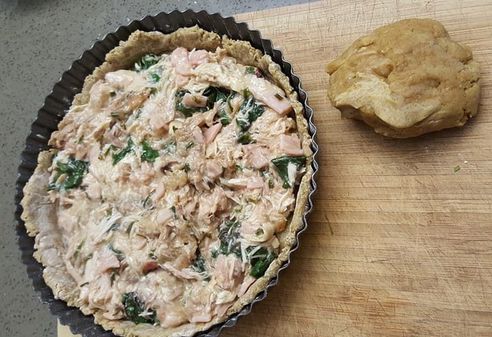
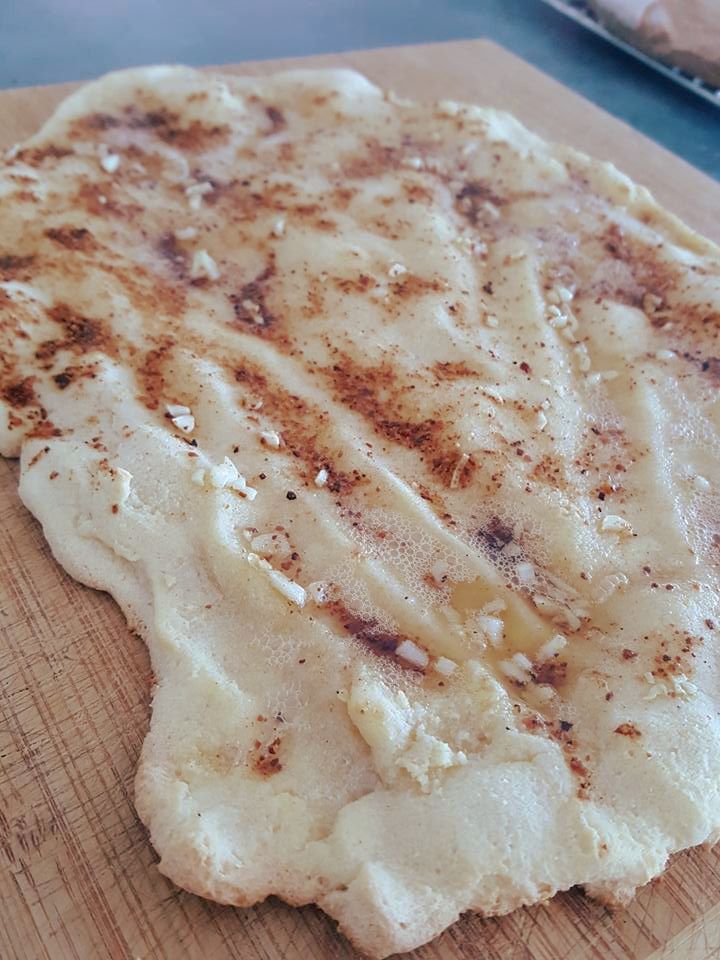
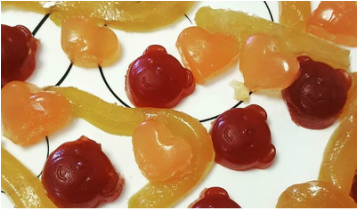
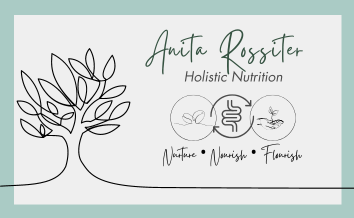

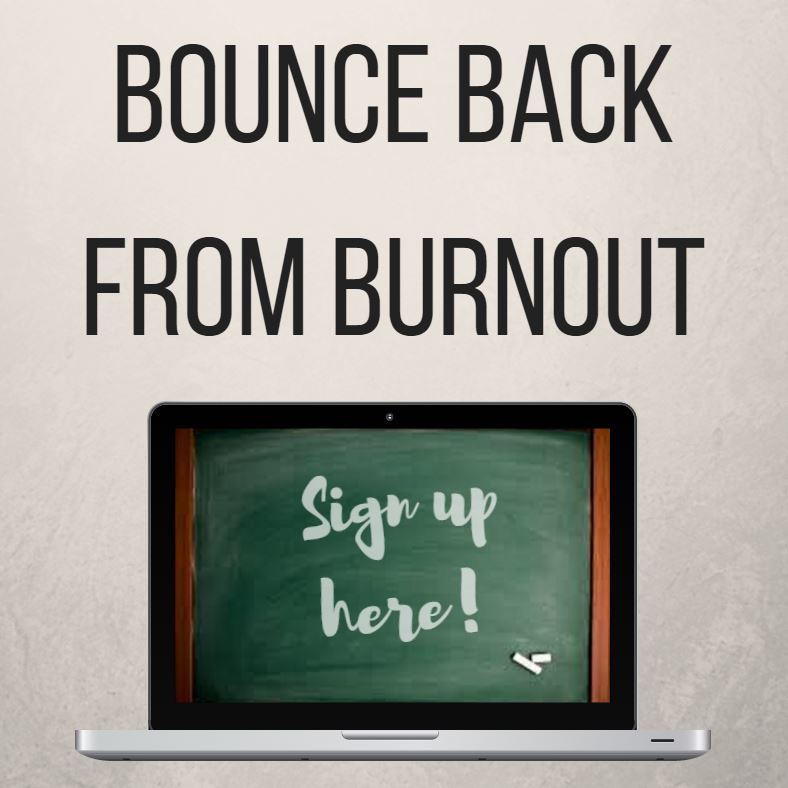

 RSS Feed
RSS Feed